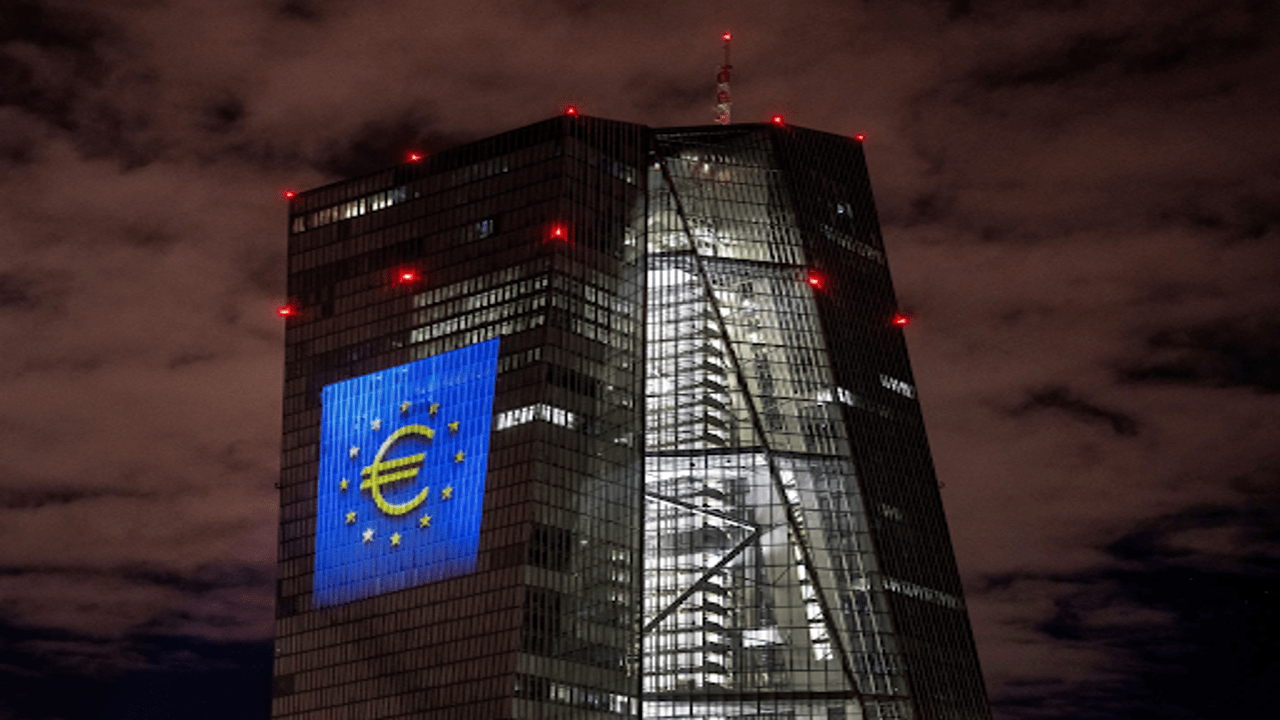
In Image, European Central Bank. (AP Photo/Micheal Probst). Europe Faces Political and Economic Challenges Amid Leadership Crises
Europe’s economy, already struggling with slow growth and competitiveness against the U.S. and China, now faces new obstacles as political turmoil grips its two largest economies, France and Germany. With challenges ranging from a troubled auto industry to mounting defense costs against Russia, the region is grappling with uncertainty. The situation is further complicated by the looming threat of U.S. tariffs under incoming President Donald Trump.
The political stalemate in France and Germany, which together account for nearly half of the eurozone’s economy, is expected to last well into 2025. This paralysis weakens the traditional Franco-German alliance that has historically driven European initiatives.
In France, Prime Minister Michel Barnier resigned after losing a confidence vote, leaving President Emmanuel Macron to appoint a successor who lacks parliamentary majority. The next elections are constitutionally delayed until at least June. Meanwhile, Germany’s coalition government, led by Chancellor Olaf Scholz, collapsed in November. Early elections scheduled for February 23 may not lead to a new government until April, prolonging uncertainty.
Friedrich Merz, Germany’s likely new conservative leader, has signaled willingness to ease constitutional borrowing limits for growth-focused investments. However, France faces deeper political gridlock, leaving it unable to implement significant economic reforms, according to Mujtaba Rahman of Eurasia Group.
“The lack of leadership in both nations means Europe’s economic potential is not being fully realized,” Rahman said.
Broader Implications for Europe
Economic challenges extend beyond political paralysis. A recent report by former European Central Bank President Mario Draghi outlines key recommendations to boost Europe’s competitiveness, including joint borrowing for public investment, an EU-wide industrial policy, and integrated financial markets. However, Rahman cautioned that “nothing can move forward without Franco-German alignment.”
Adding to Europe’s woes, its auto industry is pushing for a revision of strict emissions standards set for 2026. Manufacturers argue that declining demand for electric vehicles could lead to fines, diverting resources from new EV development.
French economist Anne-Laure Delatte noted that while financial markets remain calm, ongoing political instability in France and Germany could shift power dynamics within the EU. Countries like Spain and the Netherlands, currently performing well, may step into more prominent roles.
Defense, Trade, and Trump
The urgency of a unified European response is underscored by the need to address President-elect Trump’s trade policies. Trump has hinted at tariffs that could harm Europe’s export-driven economy. Some European officials suggest appeasement strategies, such as increasing purchases of U.S. liquefied natural gas or boosting defense spending, particularly in Ukraine, to meet NATO commitments.
Economist Holger Schmieding of Berenberg Bank argued that Europe is missing an opportunity to proactively engage with Trump before his inauguration. “It would be ideal to present a unified offer, such as committing to higher defense spending in exchange for favorable trade terms,” Schmieding said.
European Commission President Ursula von der Leyen holds significant influence in trade matters but lacks the full backing of France and Germany to negotiate effectively. Talks of raising €500 billion in common defense bonds remain theoretical without Germany’s participation.
As Europe’s economy grows at a modest pace—0.8% this year and 1.3% next year, according to the European Commission—its political leaders face mounting pressure to address issues that require collective action. The prolonged absence of leadership in France and Germany raises questions about Europe’s ability to tackle major challenges in defense, trade, and economic competitiveness.















